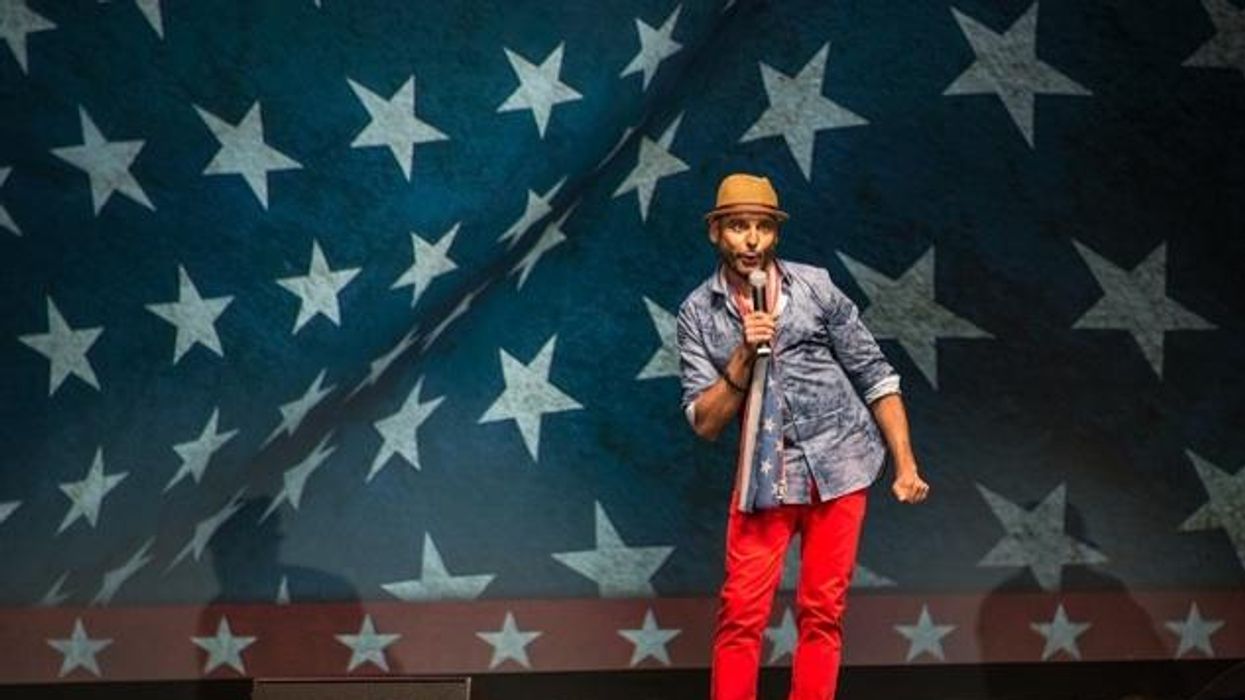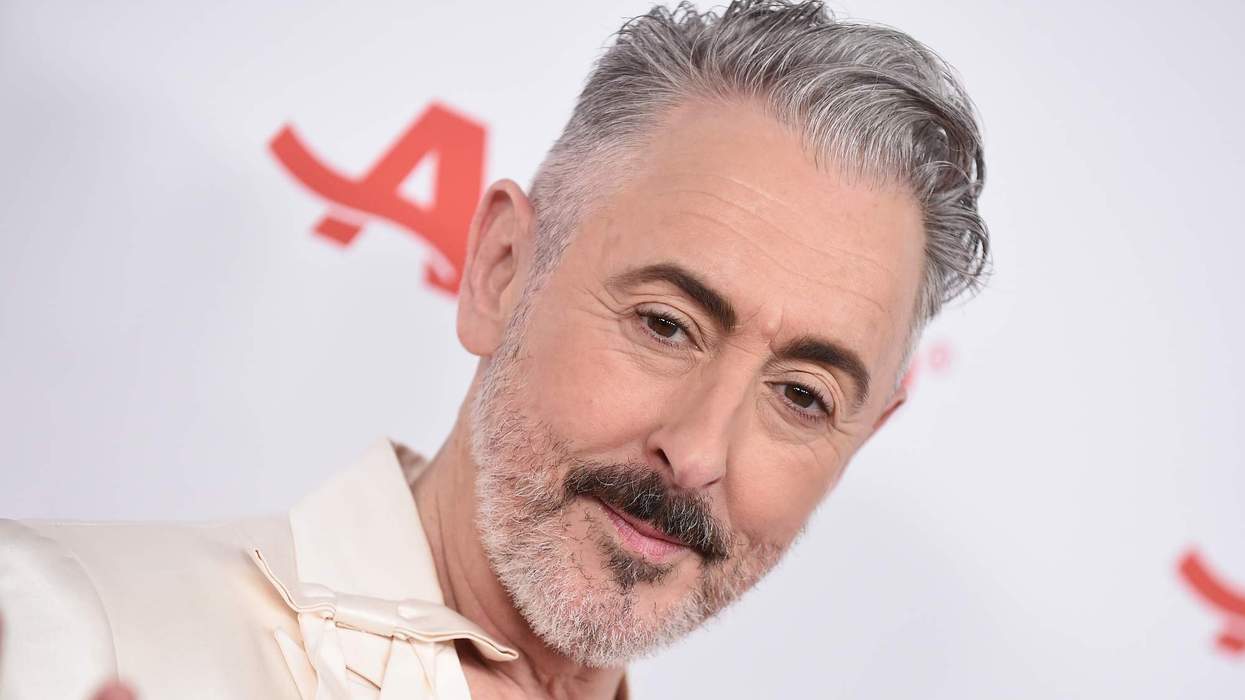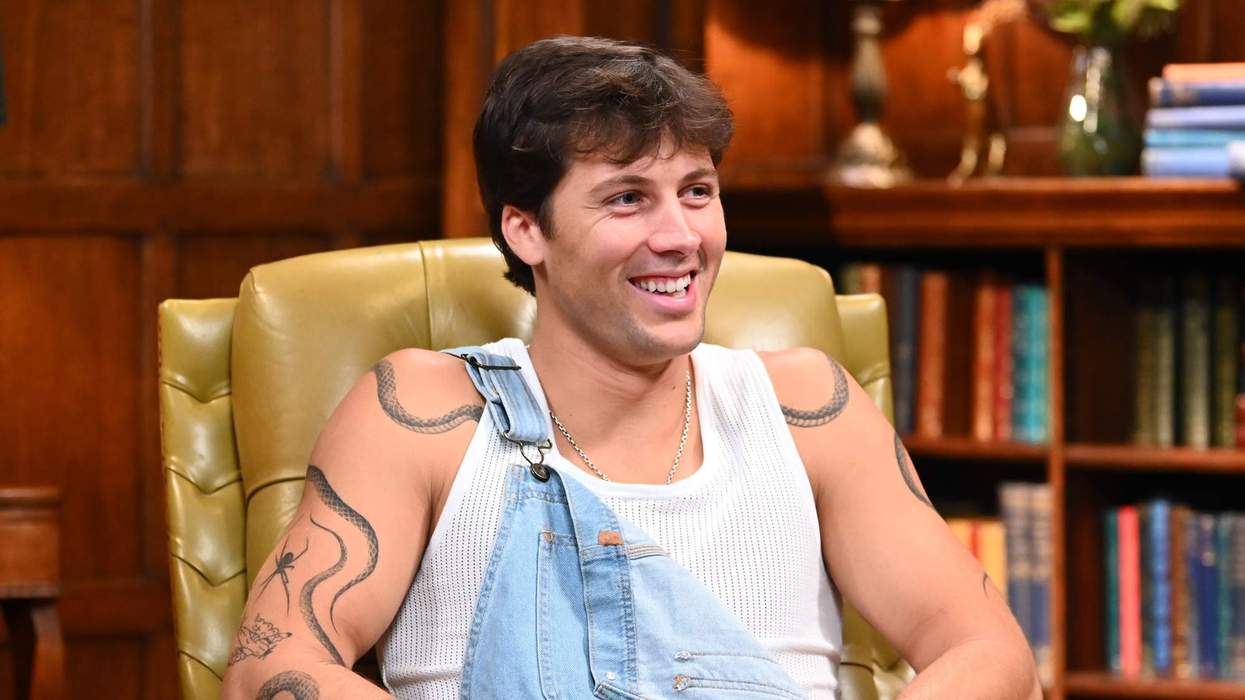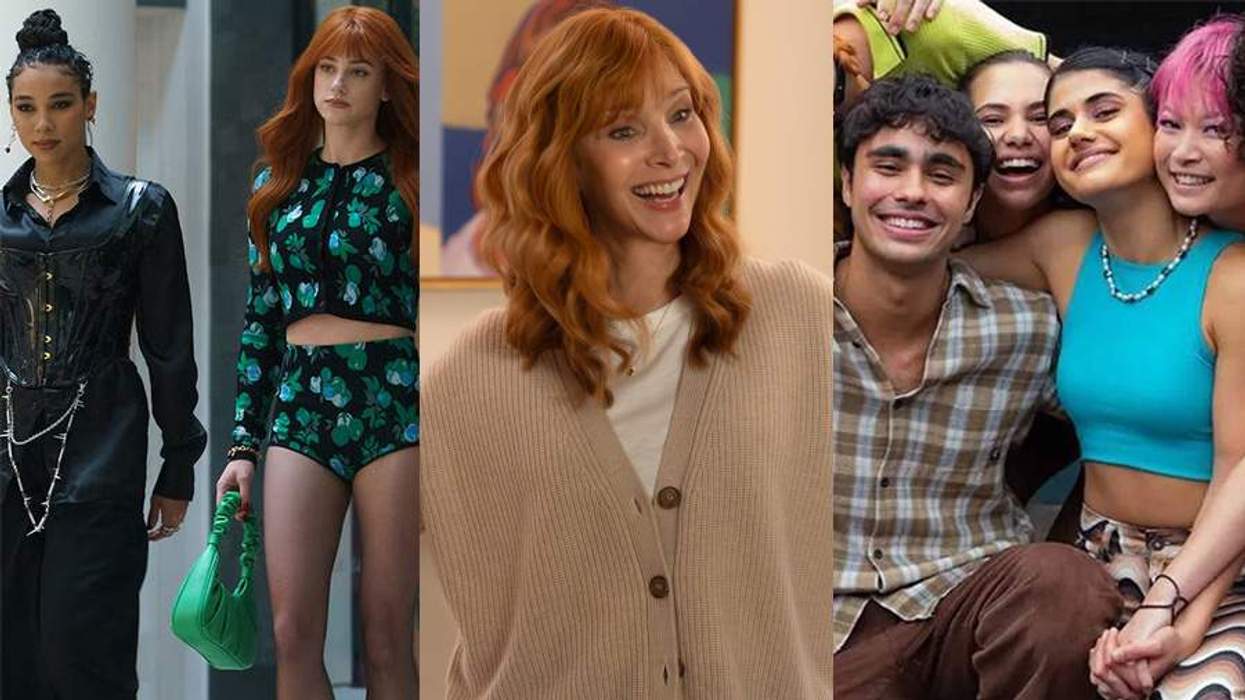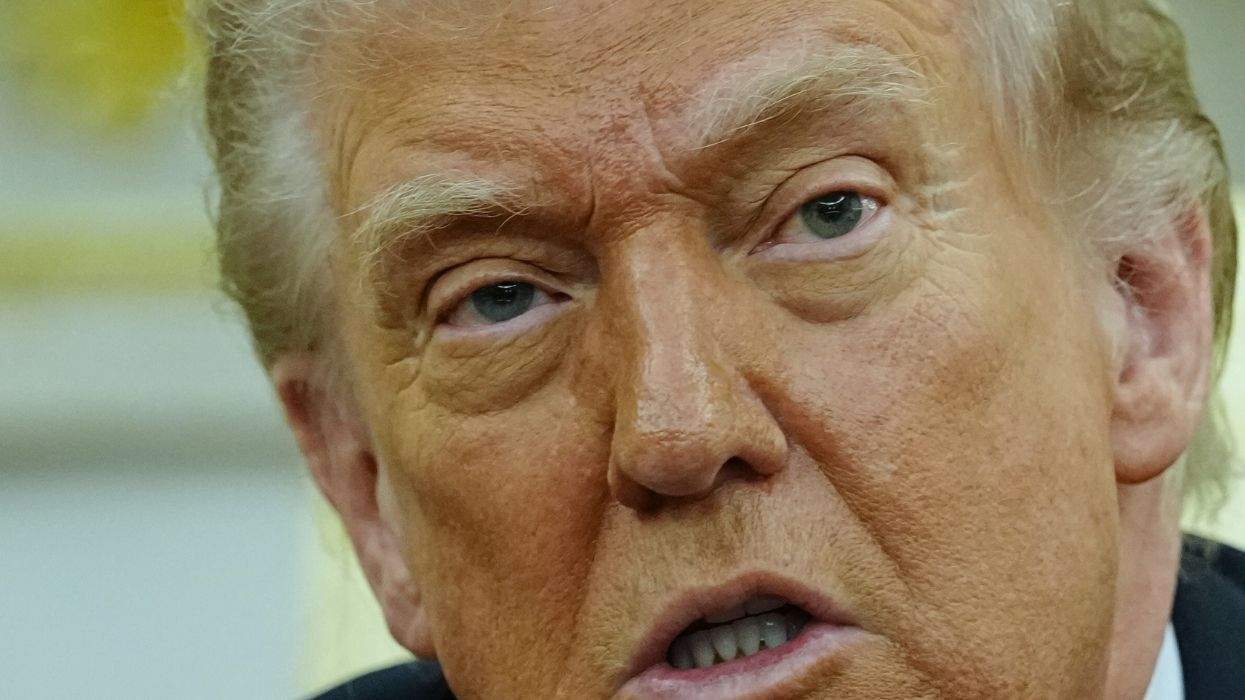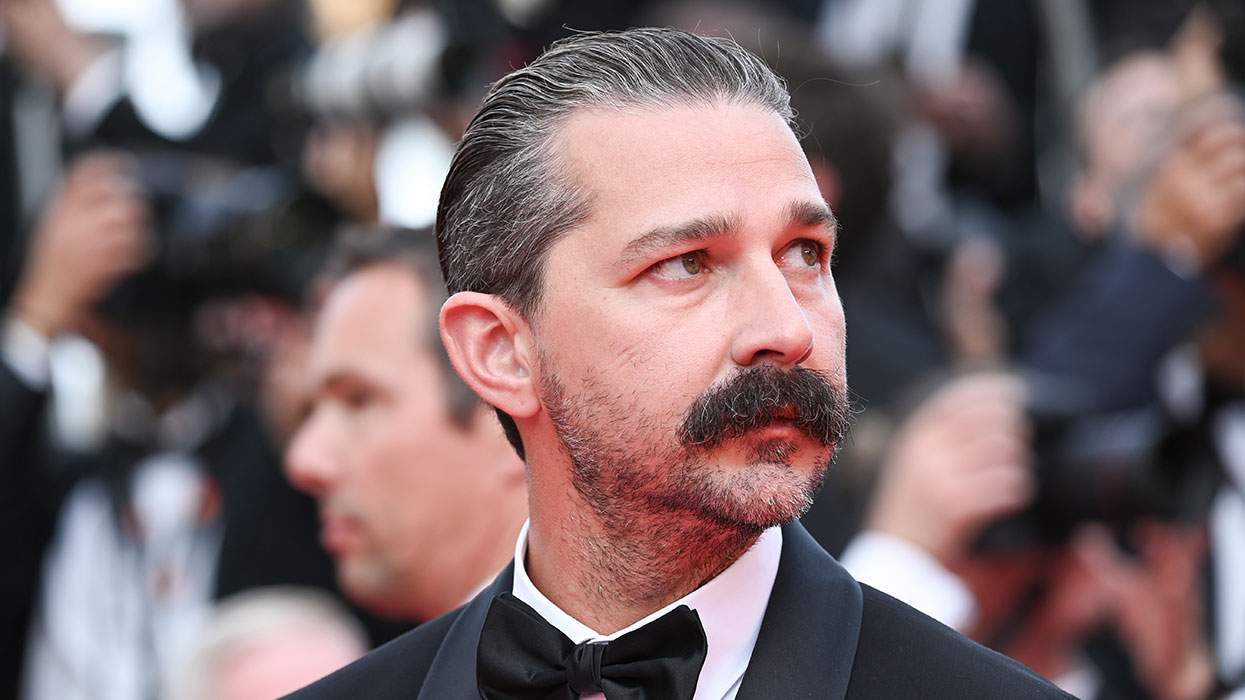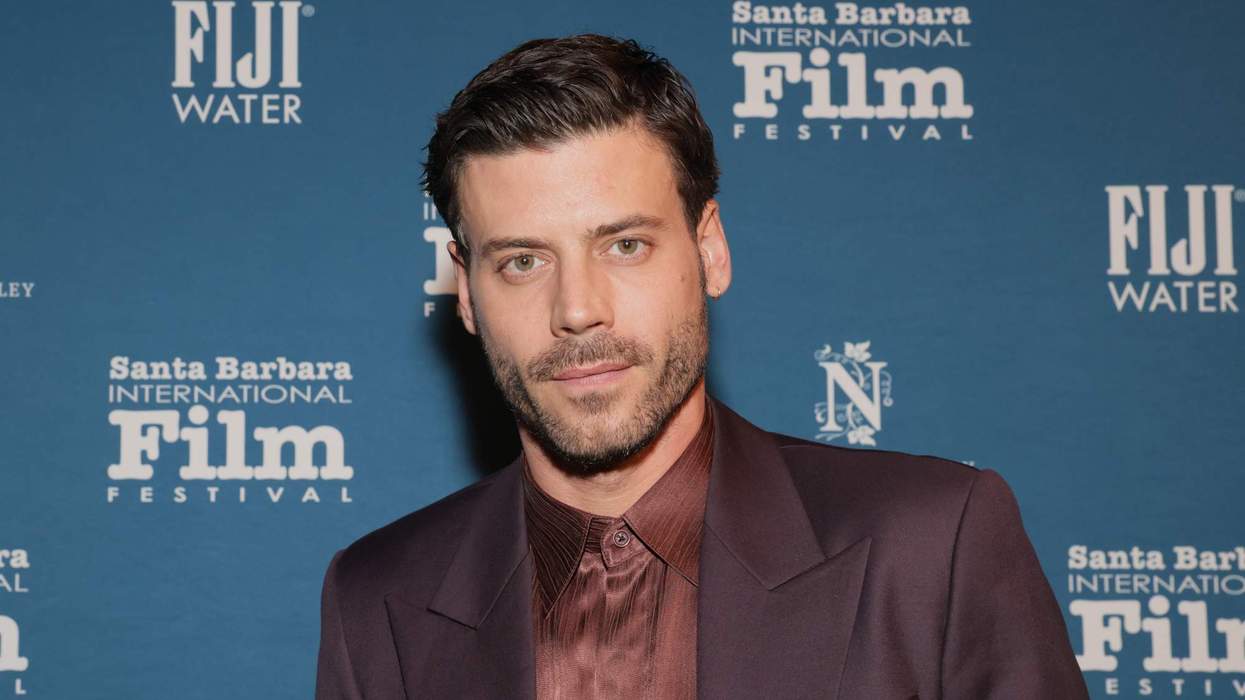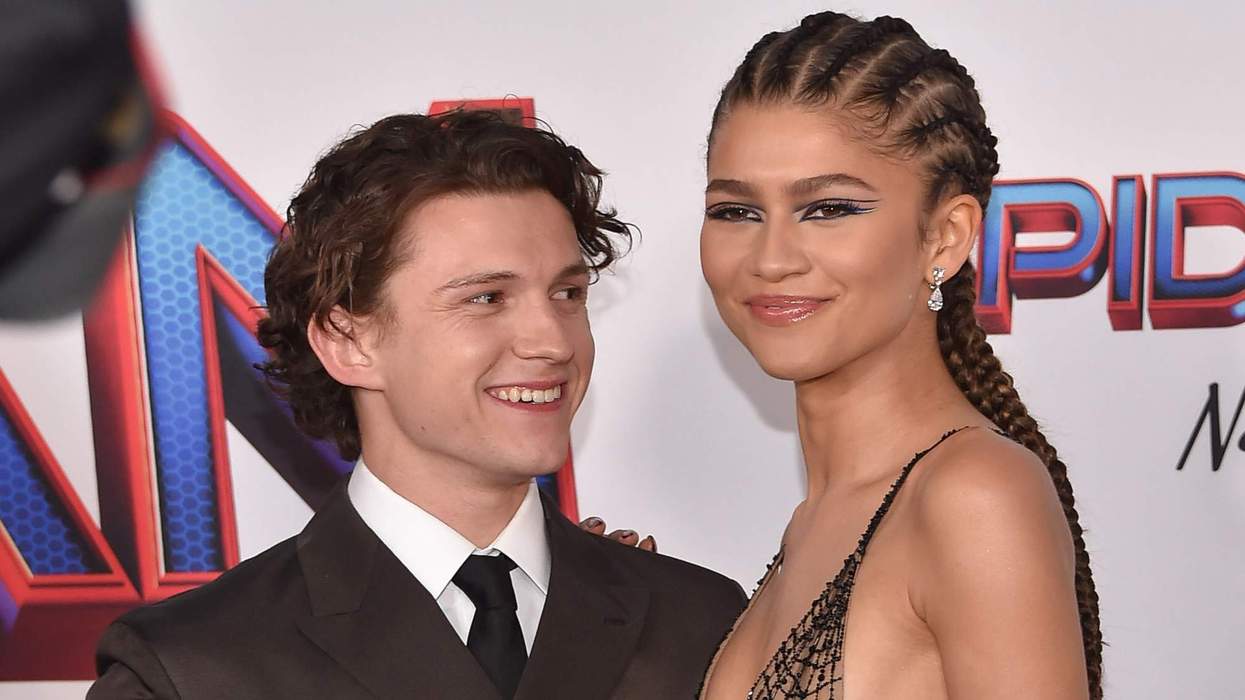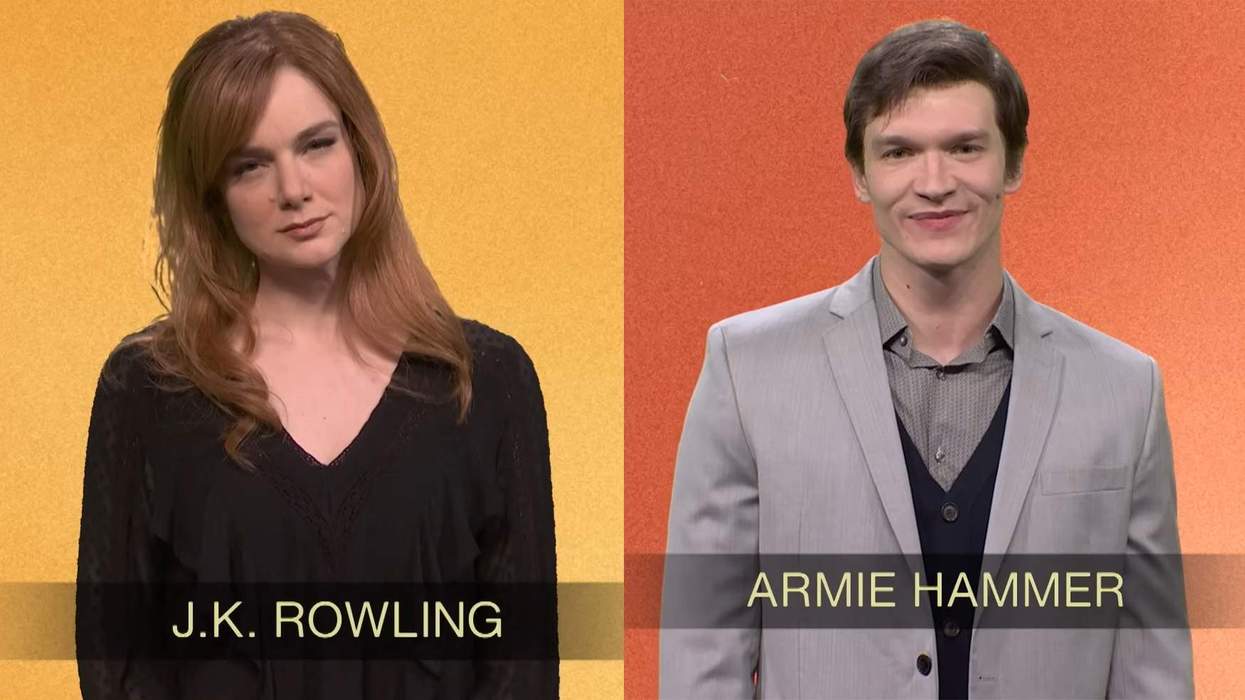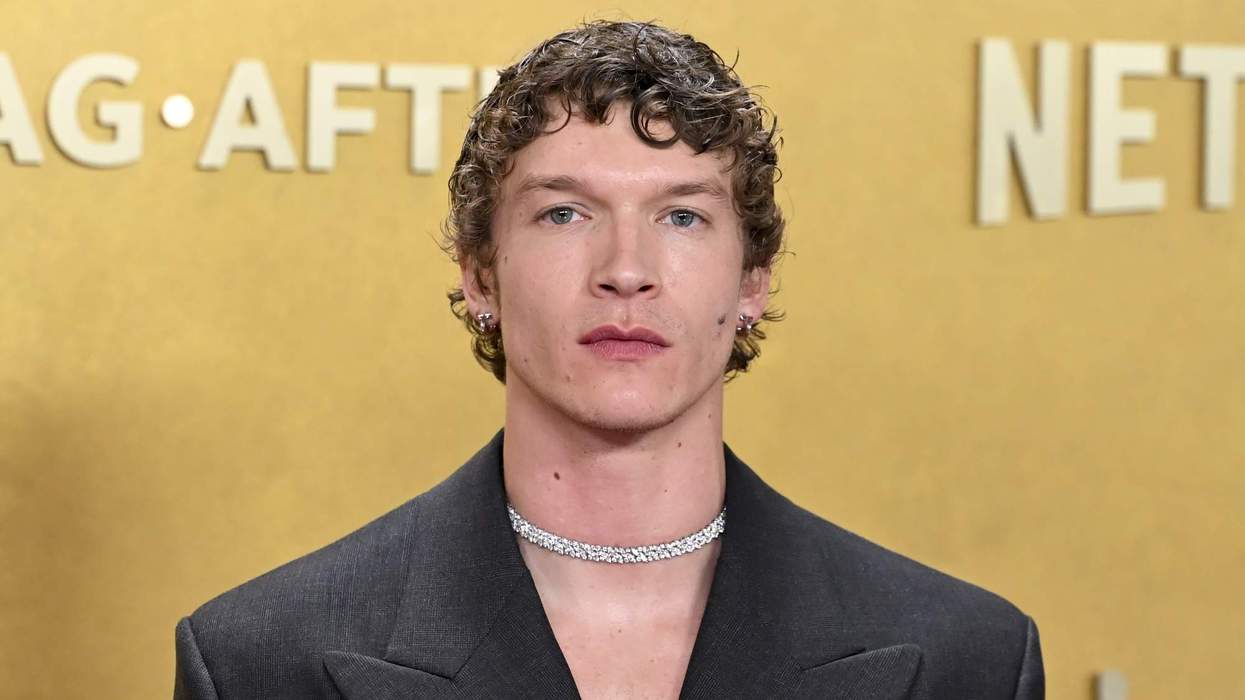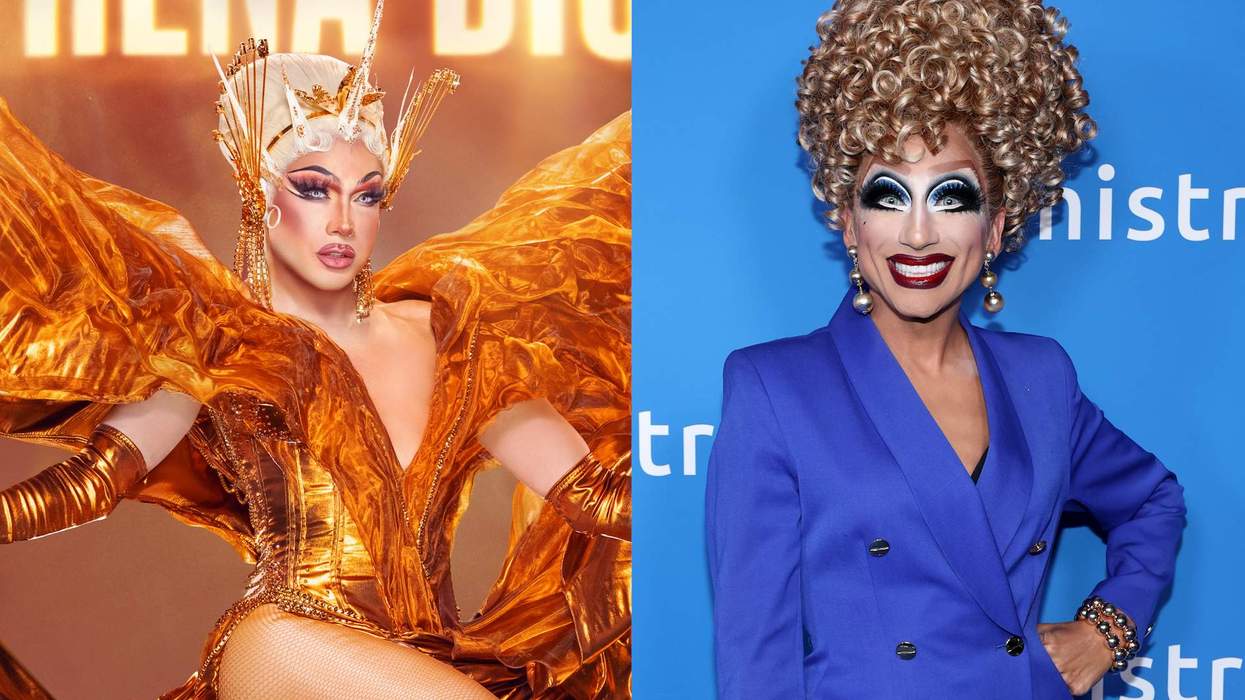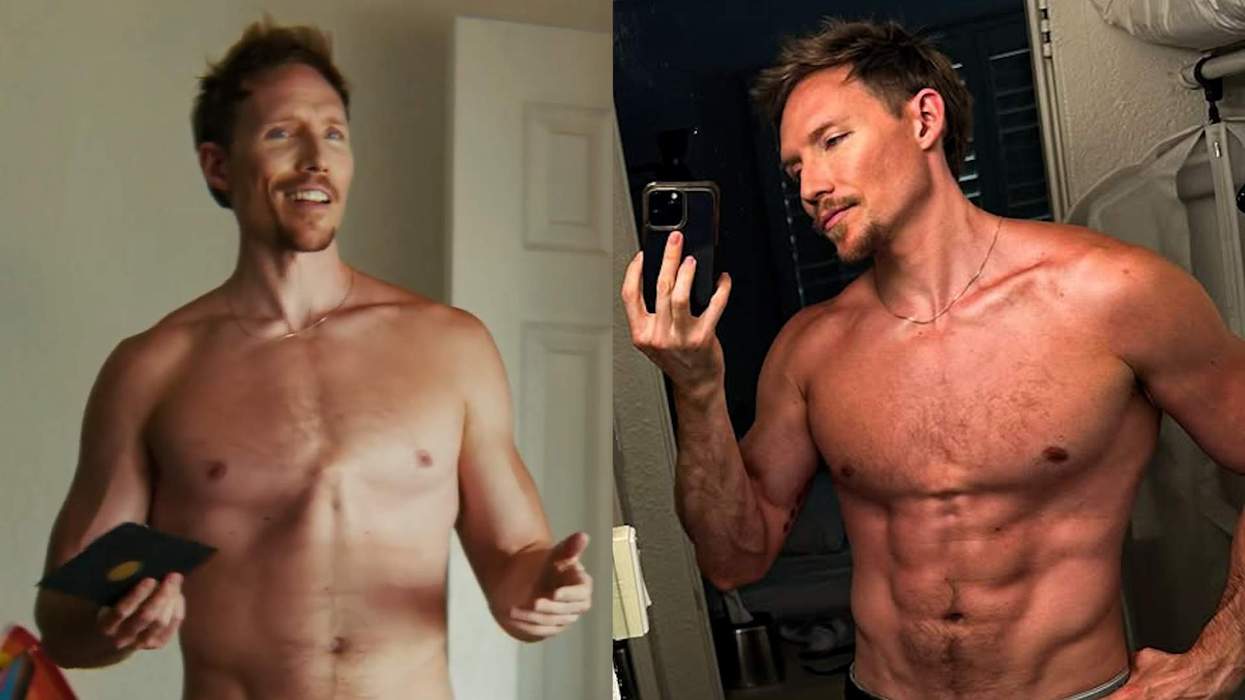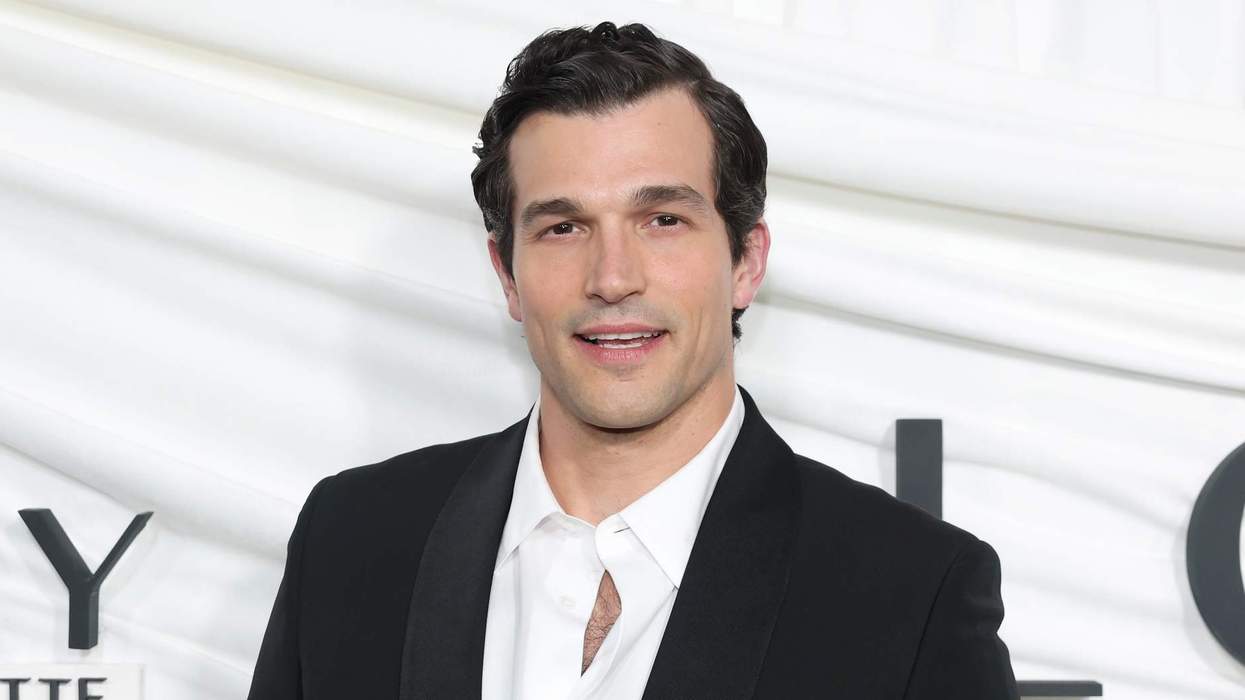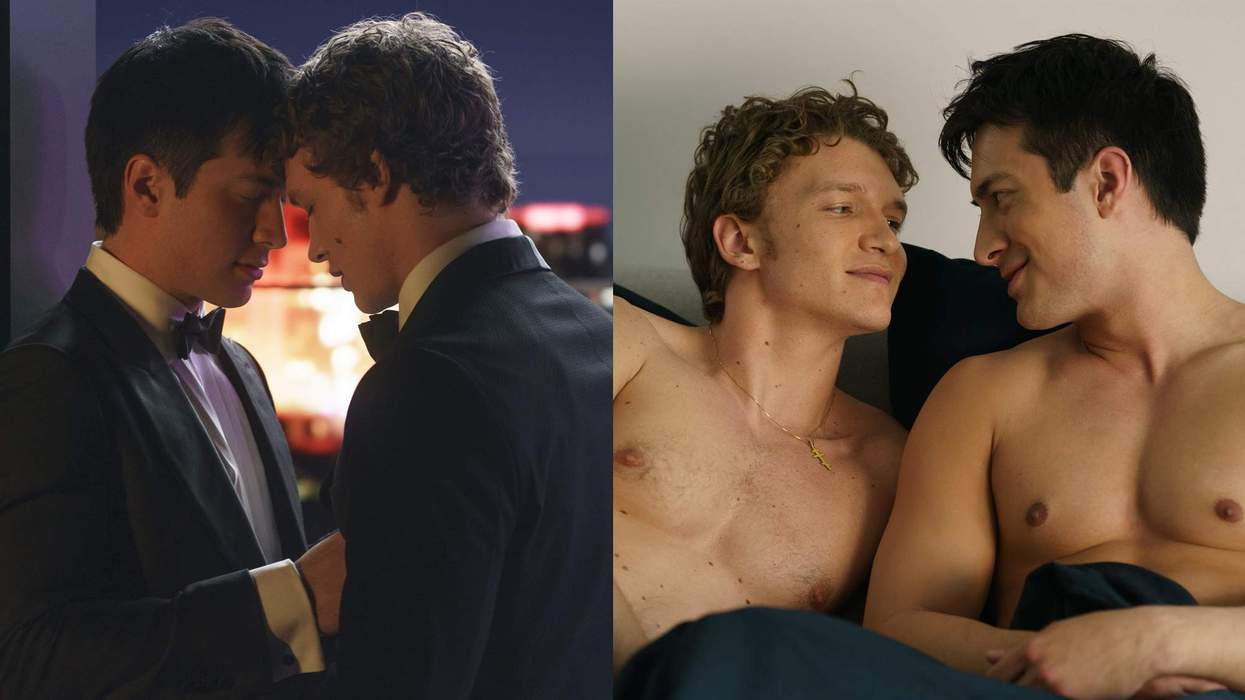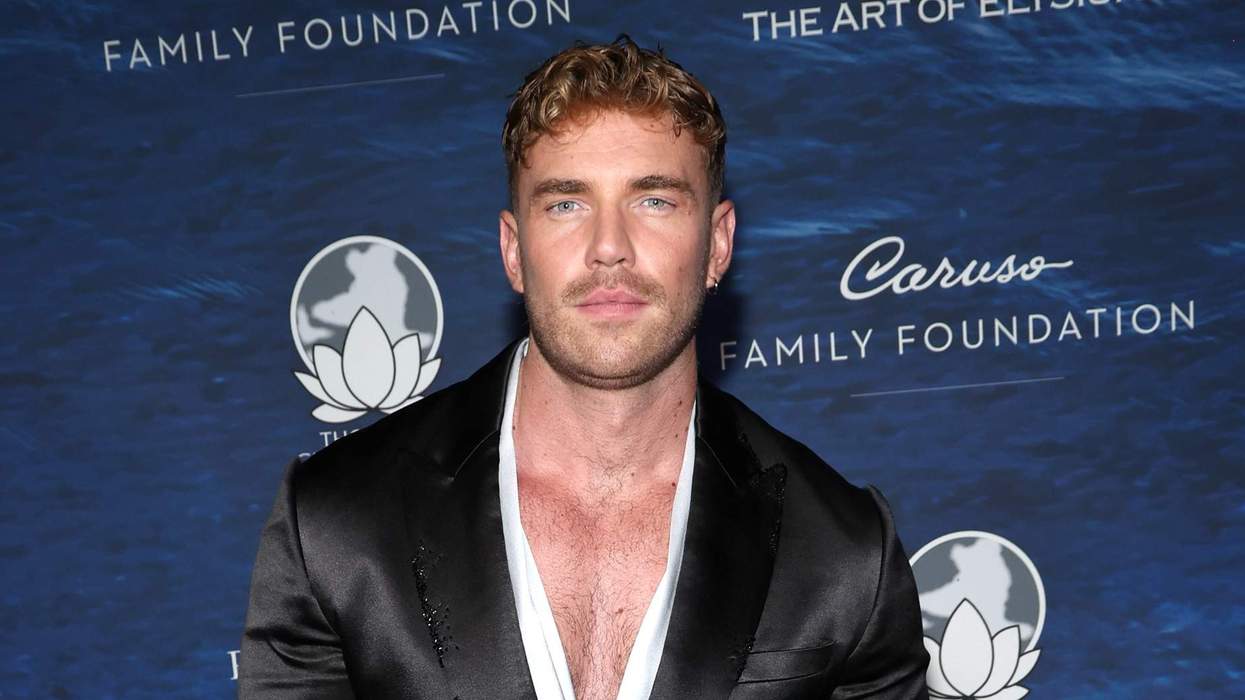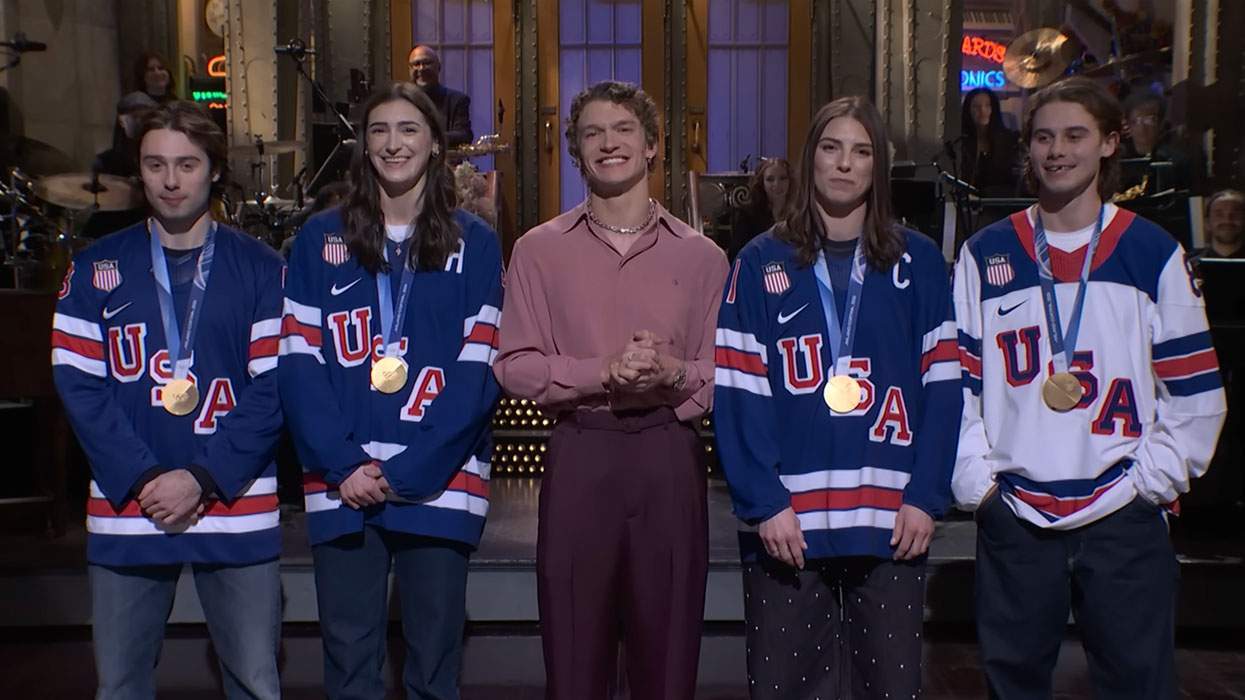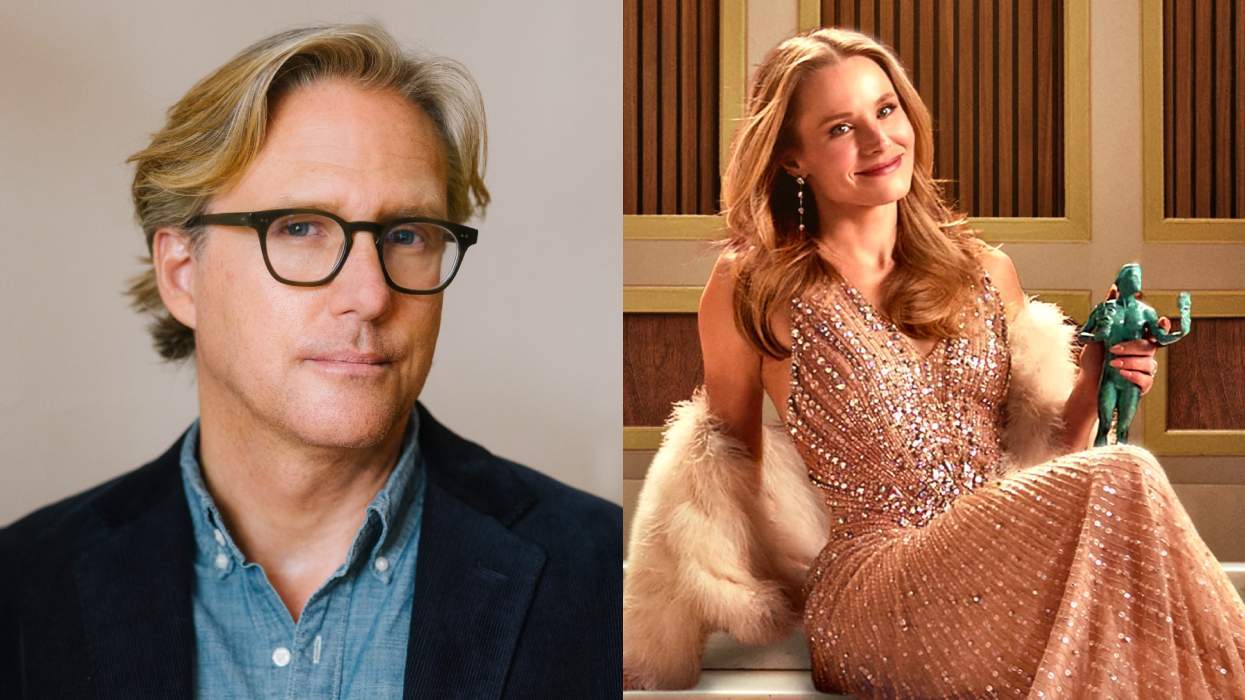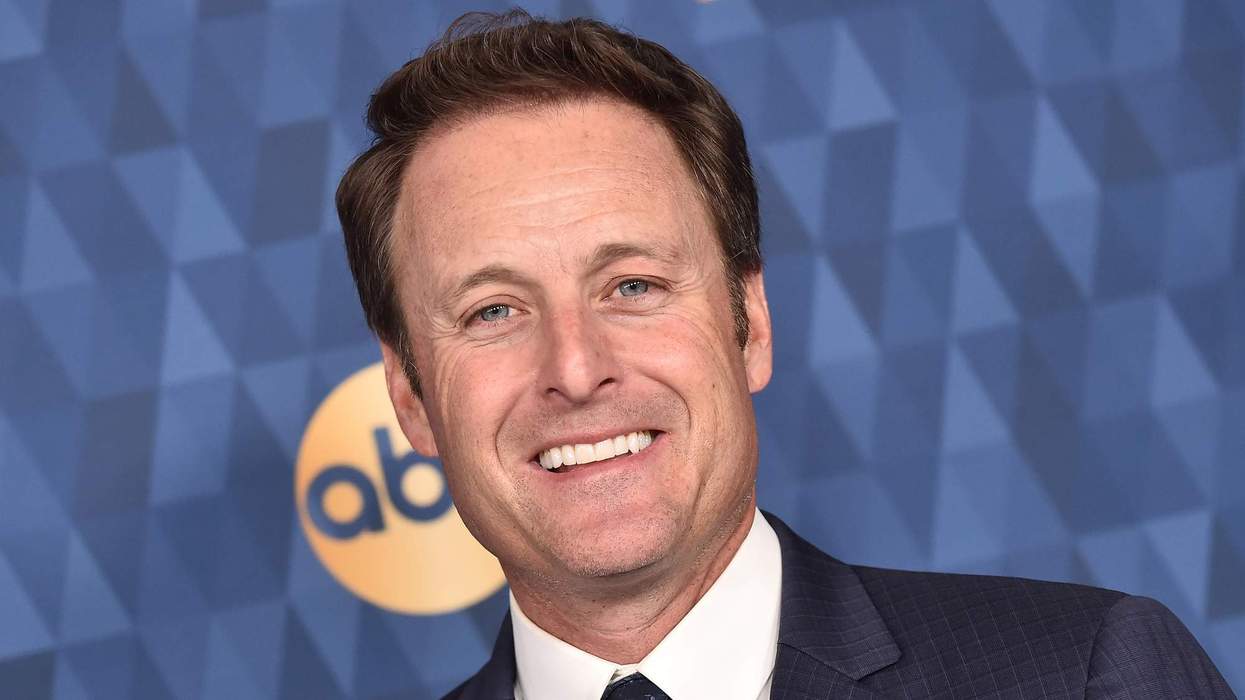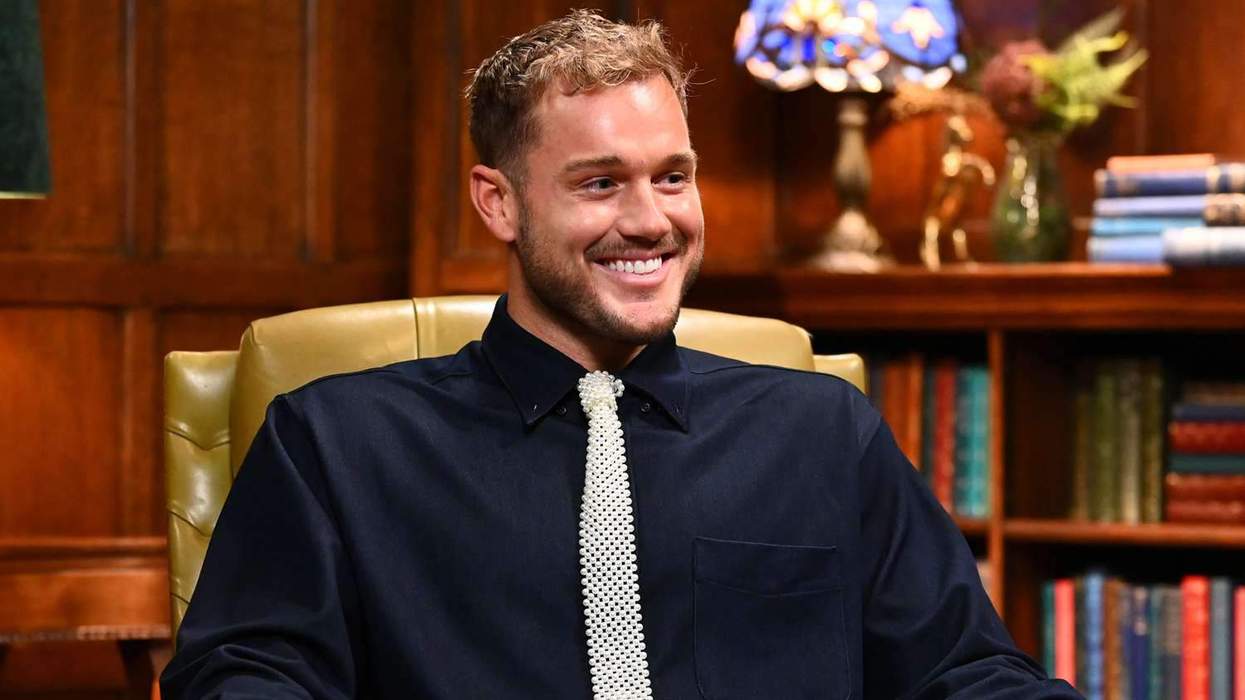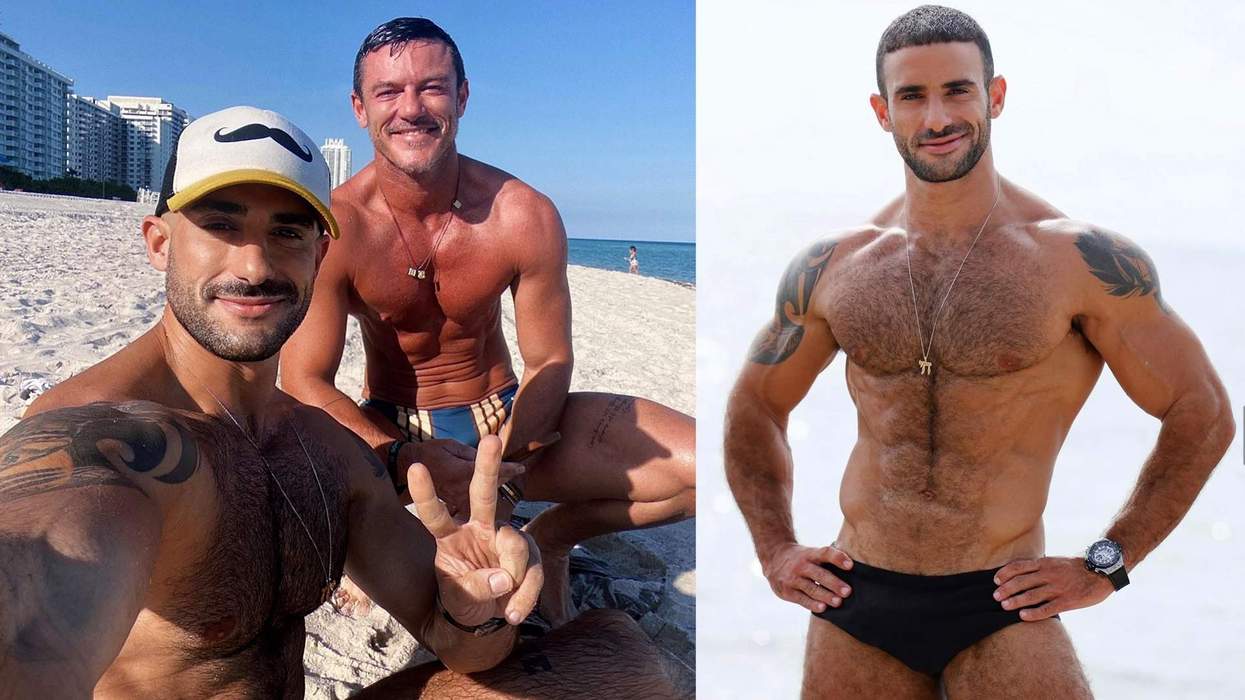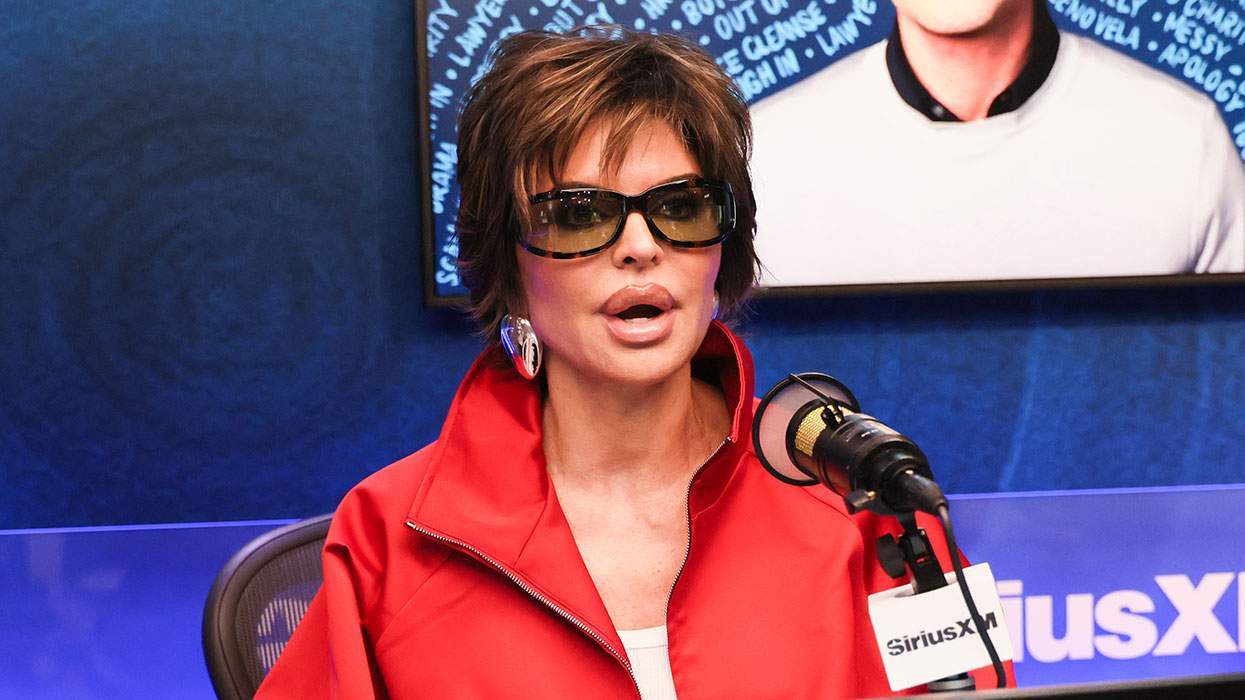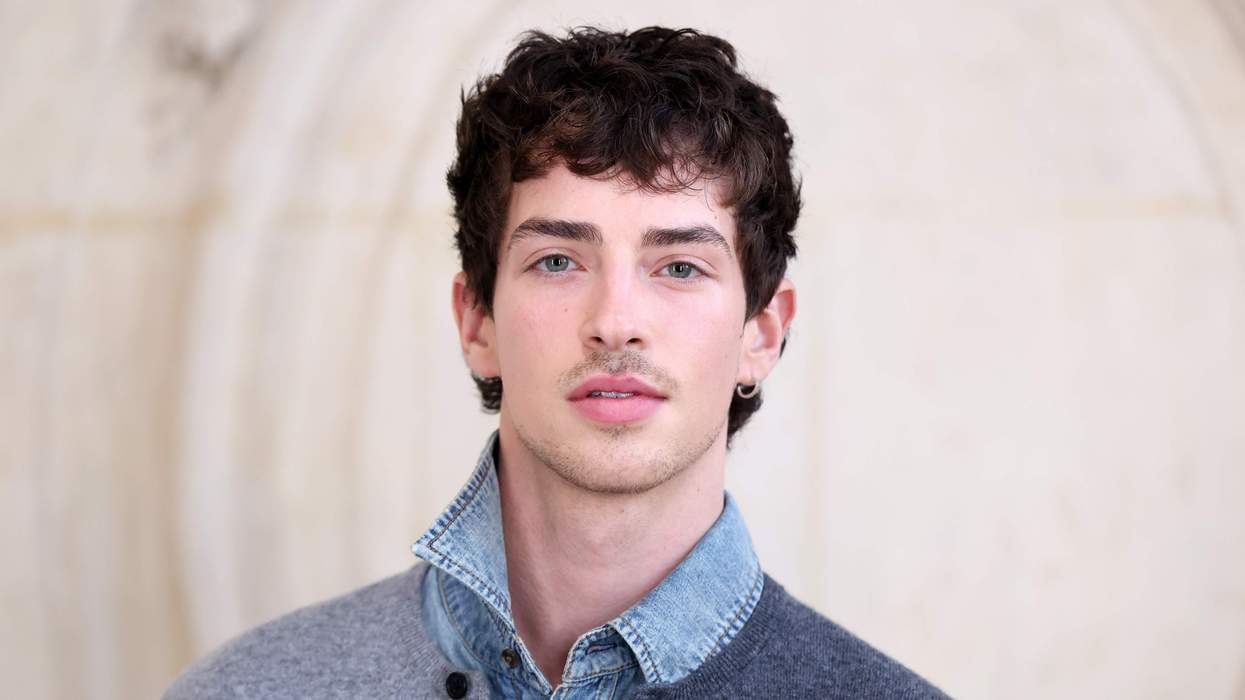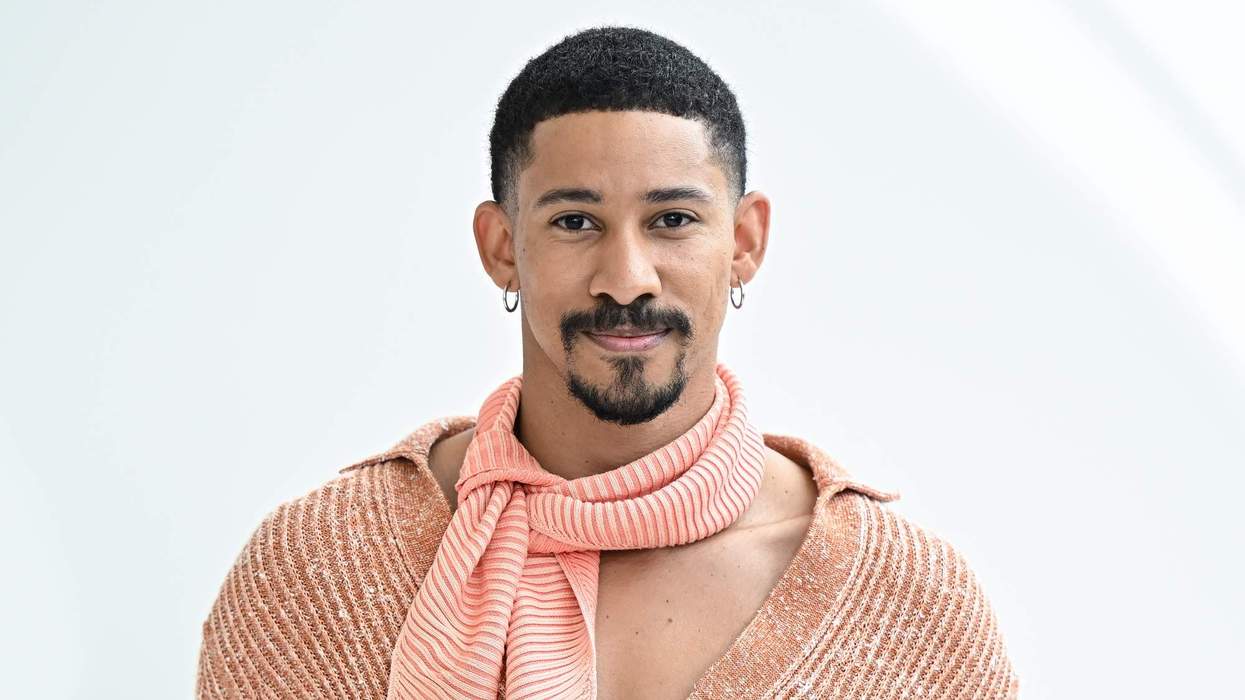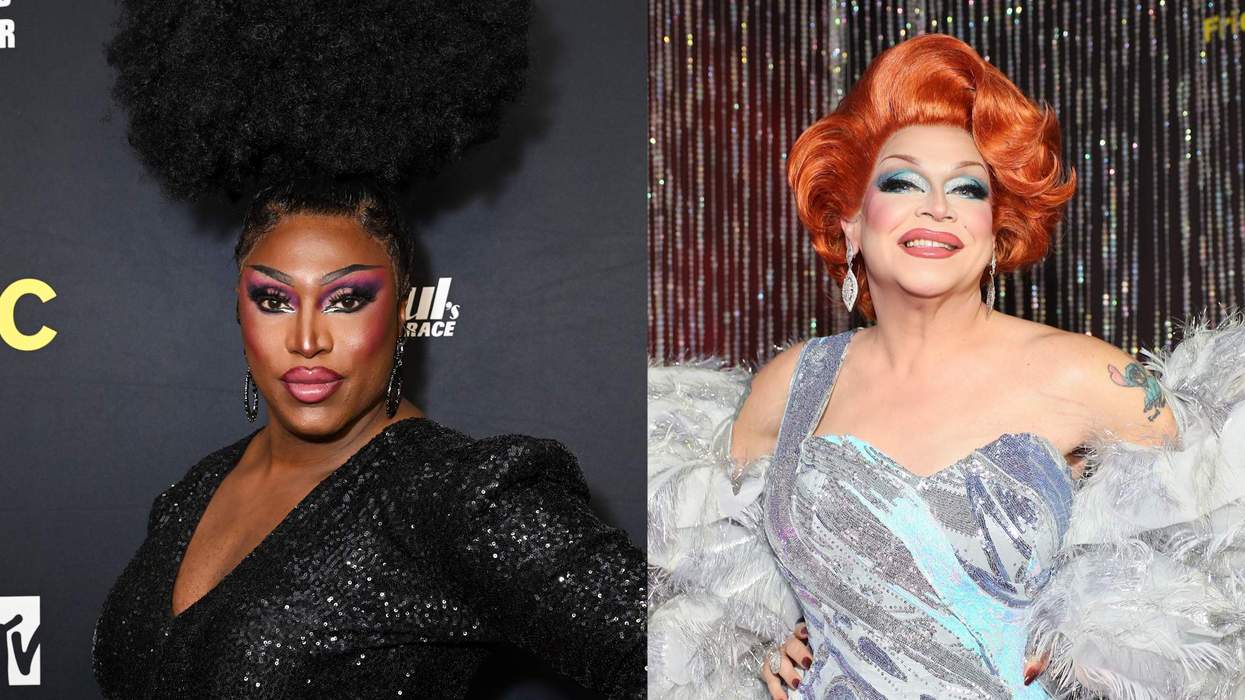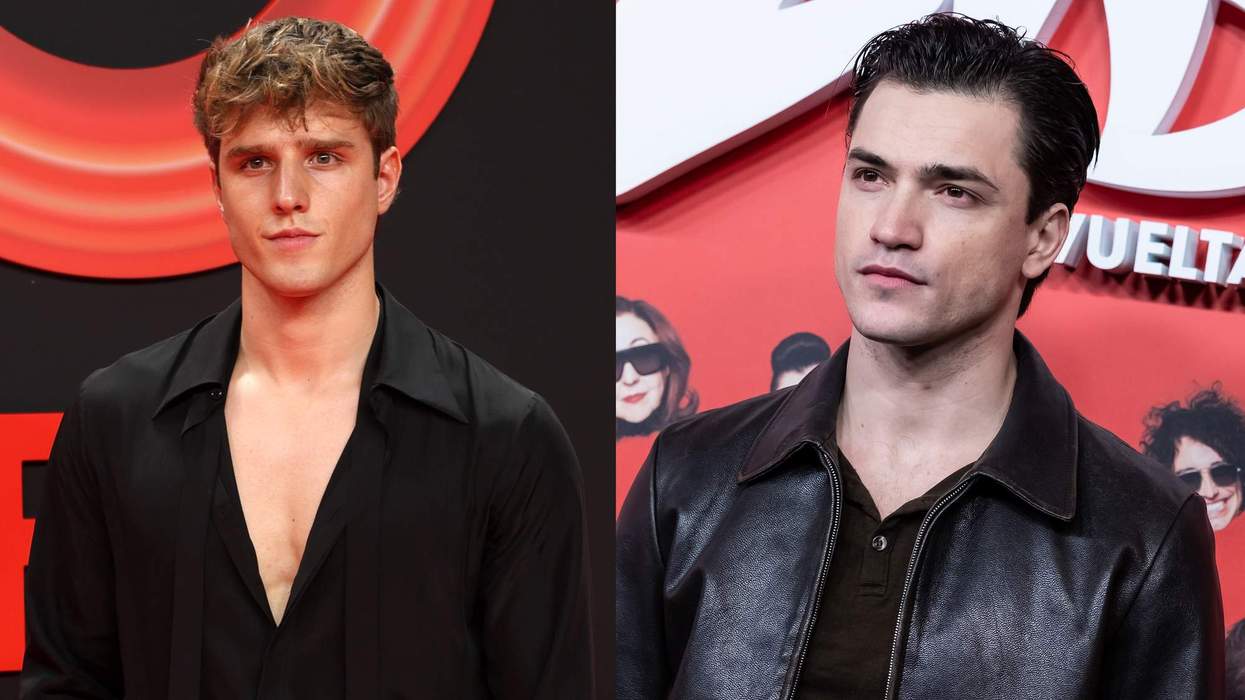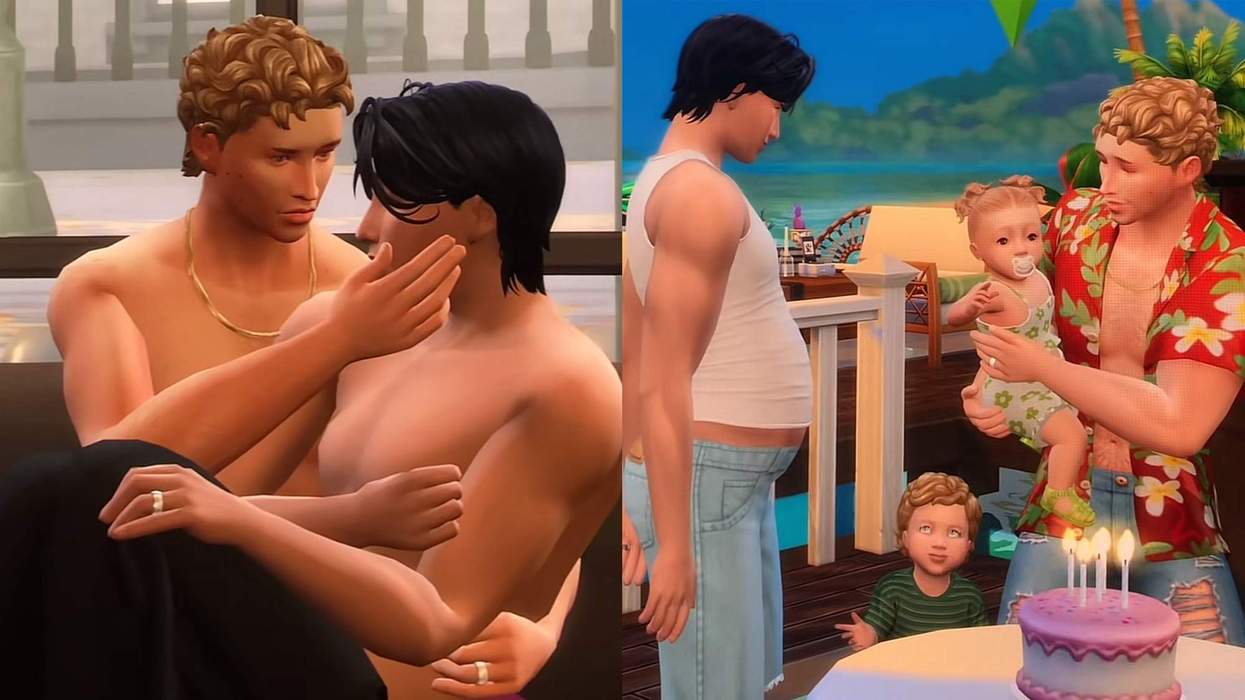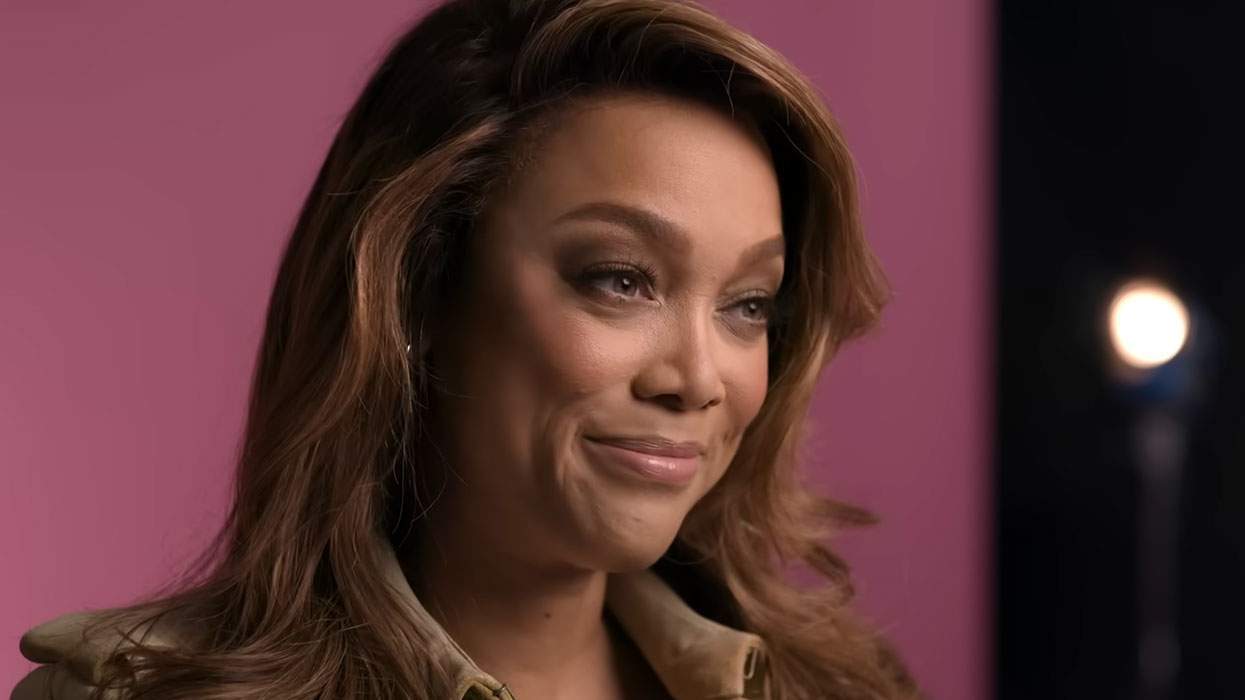I know this may sound like an oxymoron, but I may be the first openly gay (Indian) stand-up comedian to be asked to perform in the Kingdoms of Bahrain and Saudi Arabia. As a stand-up comic, I define myself as an inherent risk-taker, but being asked to perform in the Middle East really threw me for a loop as I struggled to assess how much risk I was actually comfortable with.
My partner of nine years, Joel, a Jewish, all-accepting native New Yorker, was outraged that I would even consider this offer. "Are you insane?!" he asked. "We are obviously VERY different people: I wouldn't dream of ever even visiting that part of the world, let alone performing there as a gay comedian. The fact that you would even consider it scares me! If you do this, then find another boyfriend !"
To be honest, he is a bit neurotic.
To his credit, however, he has been OK with me performing for mainstream audiences in India, the Caribbean, and South Africa--to name a few countries that were not exactly "free of challenges" on the queer front. As I thought more and more about performing in the Middle East, I realized I had already performed was totally comfortable performing for many Middle Eastern crowds in the US. Palestinians, Egyptians, Saudis, Iranians--I've even performed at an all-male event for orthodox Persian Jews!
I have always connected effortlessly with these audiences, probably more because I am "brown" than gay and also because comedy breaks down barriers and borders. The juxtaposition of both these identities--brown and gay--has helped create a compelling character that tickles the funny bone of crowds and makes culturally controversial material somewhat non-threatening. That's probably why I'm regularly booked as a headliner at the "Big Brown Comedy Hour" in NYC at the Broadway Comedy Club, hosted by Aasif Mandvi of The Daily Show and produced by comedian (and CNN commentator) Dean Obeidallah.
In fact, the reason I got offered these gigs in Bahrain and Saudi Arabia in the first place is because I was an opening act for Maz Jobrani (Iranian stand-up comic/superstar for Middle Eastern people worldwide) at Caroline's on Broadway. His producer for the Middle East, Peter Howarth-Lees, a Brit who lives in Riyadh, Saudi Arabia, saw me rock the crowd and said he would love for me to come perform in Saudi Arabia.
But performing stand-up comedy internationally is always fraught with challenging experiences. When I was performing in Trinidad and Tobago, the producer told me just a few minutes before I got on stage,: "Do not mention you are gay; the audiences will turn on you!"
Shaking with discomfort, I followed his advice--and it was a disaster. The elephant in the room was so obvious that I bombed in front of a stadium full of 3,000 people. I was literally booed off the stage.
After that experience, I learned to never let a producer tell me what I can and cannot say on stage: this is my art, my act, my comedy. Saudi Arabia, however, was a whole new league in terms of risk and danger.
When I googled "LGBT rights in Saudi Arabia," this is what I found on Wikipedia: "LGBT rights in Saudi Arabia are unrecognized. Homosexuality is frequently a taboo subject in Saudi Arabian society and is punished with imprisonment, corporal punishment and capital punishment. Transgenderism is generally associated with homosexuality."
Now, I am all over YouTube, clearly "out" and have had plenty of hateful comments directed at me. How could I possibly be safe in Saudi Arabia? Yet there was a part of me that was curious. I've always been attracted to adventure and to being the first to do something.
My boyfriend Joel said, "Of course you will risk your life--so you can get in the news."
But the decision triggered some of the most anxiety-inducing few days of my life. All of a sudden I became more aware of Arabs in New York City. Articles on Saudi Arabia seemed to suddenly appear out of nowhere.
I read Maureen Dowd's Vanity Fair article, titled "Sex and the Saudis," which outlined her harrowing experiences as a woman in Saudi Arabia. I became even more curious--and more fearful--and started having nightmares of being arrested by the religious police and getting lashes in a jail cell in Riyadh. What if I went and could never return?
The producers were pushing me for an answer. The comedy sets they wanted me to do were in Manama, Bahrain, followed by Riyadh and Jeddah, Saudi Arabia. I checked with my fellow "brown" comics that had performed there. I talked to Maz Jobrani and all the other Arab comics I know. None of them could give me a "straight" answer. They were like, "Well, in general you should be fine! But you never know. If there's one crazy person in the audience who takes offense to something you say, they might want to get you arrested. Or kill you."
The Kingdom of Saudi Arabia does not even have movie theaters, I discovered. In fact, any type of public entertainment is typically banned. Peter reassured me that the show would not be advertised. "It's by word of mouth only, and it will be held at an undisclosed location so that the religious police do not get wind of it." OK, that was not completely reassuring.
Becoming increasingly nervous, I sent Peter an email with my findings on LGBT rights (or the lack thereof) in Saudi Arabia, and I asked him if he was going to guarantee my safety.
I never heard back from him.
Later, I learned that he decided that if I asked such a question, I was going to be too nervous on stage, so he played it safe and booked an Arab comic instead.
I guess that answered my questions about mysafety. But I decided, contrary to Joel's opinion, to proceed with the show in Bahrain, which neighbors Saudi Arabia, and use that as my introduction to performing in the Middle East.
I arrived in Manama in late September 2010 after a hugely successful four-city stand-up tour of India. I got interviewed by a lot of journalists all over India, and a lot of it was about my sexuality. One journalist asked me, "Do you have a boyfriend?"
When I answered, "Yes." The female reporter quickly asked, "Is he also a gay?" with an expressionless face.
So I replied, with a laugh: "NO! He's your husband!"
Bahrain was not nearly so open. Arriving in Manama from India was an experience in and of itself: I arrived with a plane full of disenfranchised Indians who were there to take up menial jobs in Bahrain because they can earn more than in India. The first thing that struck me at the airport was how poorly they were being treated at immigration. I had to get a a visa on the spot and breezed through immigration, much to my relief. I was picked up by my producer Salman Bukhari, a 23-year-old Saudi guy in a 4-wheel drive.
He drove at least 100 miles an hour and, with my heart in my mouth, got me to my hotel in no time at all. He reassured me that the Middle East just gets a bad rep in the rest of the world and that I could talk about anything I wanted in Bahrain--as long as I didn1t speak about religion or say anything about the Kingdom. "You should expect a large percentage of Indians and South Asians in the audience," he explained.
Manama reminded me of Las Vegas, it was another desert city with modern buildings, fancy cars, plush hotels and buildings, but lots of men in robes (called a "thobe") and women in burkhas. The morning of the show, we were driven to a shopping mall in Bahrain, which contained a swanky, glitzy movie theater and other extravagant entertainment options. There were Saudis who had crossed the border to get their entertainment fix and drink alcohol. It was weird to see huge billboards with my face on them all over the mall, especially in a Virgin Megastore. I was pretty shocked when I saw the audience: contrary to what Salman had told me, the audiences were mainly Arab, and mainly Saudis.
There were a couple of men in "thobes" in the front row and several women in burkhas. Even the camera guy, "shooting" the show, was in a "thobe". My nerves were on edge, but there was no turning back. The crowd seemed so much more conservative than Middle Eastern audiences in the US and India: I felt like a one-man gay pride parade.
Finally, I was introduced and started with some topical humor about Saudis driving and how there were no rules on the road, comparing it to traffic in India. No response! They looked at me like I had two heads. They had all Googled me and watched me on YouTube, they knew I was gay and they wanted me to release the tension. And then I just did it.
"OK! Let's just get this out of the way: I'm Indian. I'm gay. I'm Fucked!"
And the room broke into immediate laughter and applause.
The rest of the show was OK, but I kept staring from the corner of my eye at the reactions of a prominent guy sitting in the front row, wearing a "thobe." I was so aware of his presence and had made up in my mind that he probably worked for the Kingdom and was policing my show for content.
There was a tangible tension for both me and the audience; I could feel that it was the first time for both of us. But I got through it, with some big laughs and applause breaks. It was a pretty decent first set in Bahrain. What shocked me was the reception I got after the show: people wanted to be photographed with me and ask me questions. But, the biggest surprise came from the guy in the "thobe," whose presence had intimidated me throughout the show.
He came up to me with the woman next to him (who was dressed in a pink hijab). I had assumed she was his wife all along. The guy said, "My name is Salman Darwish and this is my niece. And we have seen you on YouTube for years and are your biggest fans! It's such an honor to see you in person!"
I was relieved. I made it through my set, I was alive, and the person I most feared turned out to be my biggest fan (I think he might be gay!). Both Salman and the woman in pink are Facebook friends now and they follow me on Twitter. They are two of my biggest cheerleaders.
I have since performed in Dubai and who knows, one day I might even consider performing in Saudi Arabia. Sure enough, several months later, with rioting and protests in Manama, my boyfriend says, "See, I told you not to go! You're insane! You are lucky you went at the right time."
Vidur Kapur will be featured October 26 on the Showtime special, Pauly Shore's Pauly-Tics, airing at 9 p.m.


